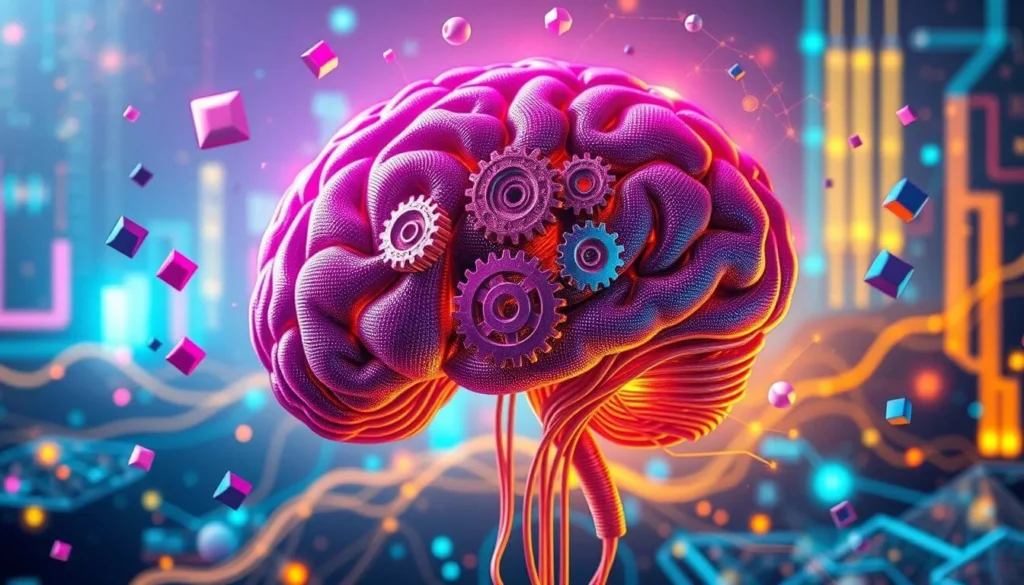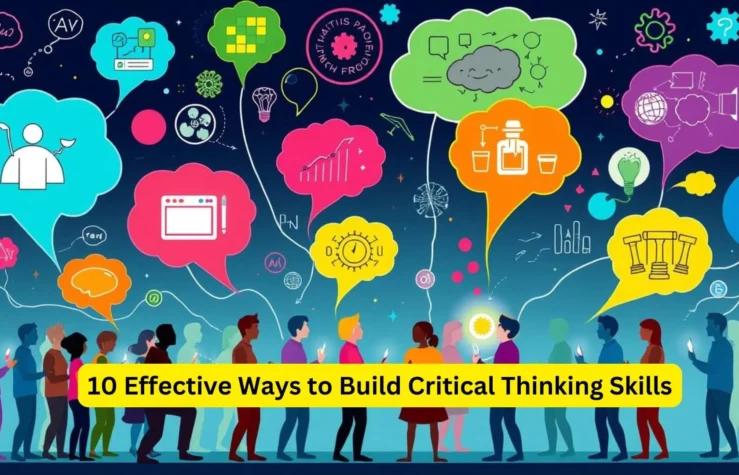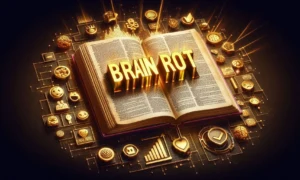Critical thinking is more important than ever in today’s fast-changing world. It empowers us to analyze information effectively, tackle challenging problems, and make informed decisions. This article explores ten practical ways to strengthen your critical thinking skills, with a focus on analytical thinking and problem-solving strategies.
Understanding Critical Thinking: A Foundation for Success
Critical thinking is key to handling life’s complexities. It involves solving problems, making smart choices, and adapting to new situations. This skill is essential for success.
Core Components of Critical Thinking
Good critical thinking includes several important parts. It’s about gathering and evaluating information, identifying assumptions, recognizing biases, and drawing conclusions. These skills help us solve problems and make better decisions.

Unleashing the Power of Critical Thinking in Everyday Life
Critical thinking plays an essential role across numerous aspects of life. It helps when making big decisions, solving conflicts, or tackling work projects. Thinking critically allows us to overcome challenges and achieve success.
Benefits of Advanced Analytical Reasoning
Improving analytical reasoning brings many advantages. It leads to better problem-solving, enhanced decision-making, and improved cognitive function. These skills give us an edge at work, help us make informed personal choices, and contribute to the community.
“Critical thinking is the disciplined art of ensuring that you use the best thinking you are capable of in any set of circumstances.”
Build Critical Thinking Skills Through Active Reading
Developing critical thinking skills is key for success in school and work. Active reading is a great way to improve these skills. It helps you understand, analyze, and draw conclusions from what you read. Active reading is more than just reading fast. It’s about really getting into the material. You ask questions, connect it to your life, and use what you already know. This makes you think better and understand more deeply.
- Annotation: By highlighting important parts and making notes, you can better understand and see connections.
- Summarization: Summing up the main ideas helps you grasp and share the key points.
- Questioning: Asking questions about the text makes you think more deeply and understand it better.
Using these active reading methods can make you better at analyzing and thinking critically. This skill is important for doing well in many areas of life. It lets you question information, think deeply, and come up with smart conclusions.
Active Reading Technique | Benefits for Critical Thinking |
Annotation | Enhances comprehension, identifies key ideas and connections |
Summarization | Promotes synthesis and articulation of core concepts |
Questioning | Stimulates critical analysis and a nuanced understanding |
Adding active reading to your studies and work can change your life. It unlocks your critical thinking and analytical skills. By diving into your reading, you lay a strong foundation for success in many areas.
Mastering Socratic Questioning Techniques
An effective technique for analytical reasoning and critical thinking is socratic questioning. The ancient Greek philosopher Socrates inspired its name. This method uses probing questions to challenge assumptions and deepen understanding.
Essential Question Types for Deep Analysis
Understanding Socratic questioning involves knowing different types of questions. These questions drive insightful discussions. Key categories include:
- Clarifying questions: These questions help understand the meaning or intent behind a statement or idea.
- Probing questions: Probing questions explore the reasoning and evidence behind a claim or proposition.
- Hypothetical questions: Hypothetical questions explore alternative scenarios and their implications.
- Reflective questions: Reflective questions encourage self-examination and the consideration of one’s own biases.
Implementing Socratic Dialogue in Discussions
Using Socratic questioning in discussions boosts analytical reasoning and critical thinking. Facilitators guide participants with well-crafted questions. This helps uncover assumptions, challenge perspectives, and explore different viewpoints.
Self-Reflection Through Questioning
Socratic questioning is also great for individual self-reflection. It helps individuals question their beliefs, decisions, and actions. This way, they can understand their thought processes better and find biases or blind spots.

Mastering Socratic questioning is key to improving analytical reasoning and logical reasoning skills. It allows individuals and teams to gain new insights, challenge assumptions, and make better decisions.
Developing Strong Analytical Reasoning Abilities
Mastering analytical reasoning is key in today’s fast-paced world. It lets you break down complex problems and find patterns. This skill helps you solve problems better.
Structured problem-solving exercises can improve your analytical skills. These exercises help you dissect challenges and test ideas. Regular practice sharpens your mind to solve tough problems.
Being detail-oriented is also important. It helps you spot subtle details and connections. This skill is crucial for strong analytical reasoning.
“The essence of analytical reasoning lies in the ability to break down the complex into its constituent parts, understand the relationships between them, and synthesize the insights into a coherent whole.”
Questioning assumptions and challenging the status quo also boosts your skills. Being curious and open-minded leads to new solutions. This approach can lead to breakthroughs.
The path to improving your analytical skills is continuous. But the benefits are huge. With effort and practice, you’ll become better at critical thinking. This will help you succeed in a changing world.
Problem-Solving Frameworks for Enhanced Thinking
Effective problem-solving is key to critical thinking. We’ll look at various frameworks and techniques to help you solve complex problems. You will have the ability to assess various options.
Structured Approach to Complex Problems
When you face a tough problem, a structured approach is crucial. The IDEAL framework is a great method:
- Identify the problem and its main parts.
- Define what you want to achieve.
- Explore possible solutions and options.
- Act on the best solution.
- Learn from the experience to improve for next time.
Decision Trees and Logic Maps
Decision trees are another useful tool. They visually show a decision-making process. This helps you analyze different options and their outcomes.
Logic maps also help. They show how a problem-solving approach works. These diagrams connect problem parts and solutions, making your choices clearer.
Evaluating Multiple Solutions
It’s smart to think of many solutions for complex problems. Use a decision matrix to compare each option. Look at things like feasibility, cost, and impact. This helps you choose the best solution.

Adding these frameworks to your critical thinking skills will improve your problem-solving. You’ll be better at tackling complex challenges and making informed decisions.
Overcoming Cognitive Biases in Decision Making
Cognitive biases can greatly affect our decision-making. They often lead to poor choices and flawed thinking. It’s key to recognize and tackle these mental shortcuts to make better decisions.
The confirmation bias is a common one. People are prone to seek for information that confirms their preconceived notions. They ignore evidence that goes against their views. To fight this, it’s important to seek out different viewpoints and question our own beliefs.
The availability heuristic is another bias. It makes us judge based on what’s easily remembered, not a full set of data. Using structured problem-solving and decision-making tools can help overcome this bias.
Cognitive Bias | Description | Mitigation Strategies |
Confirmation Bias | The inclination to prioritize information that supports one’s existing beliefs or assumptions, often overlooking or dismissing conflicting evidence. |
|
Availability Heuristic | The tendency to make judgments based on information that is most readily available or easily recalled, rather than considering a comprehensive set of data. |
|
By tackling these biases, we can improve our decision-making. This leads to better analytical thinking and more informed choices in all areas of life.
“The human understanding when it has once adopted an opinion… draws all things else to support and agree with it.”
Practicing Argument Analysis and Evaluation
Critical thinking is key to analyzing and evaluating arguments. This part covers the skills to spot logical fallacies, build strong arguments, and check evidence credibility. Learning these skills boosts your analytical thinking and makes you more persuasive.
Identifying Logical Fallacies
Logical fallacies are flaws in reasoning that undermine the strength of arguments. Argument analysis means knowing these fallacies, like ad hominem attacks and straw man arguments. Being able to identify them is vital for critical thinking.
Strengthening Argumentative Skills
Making a solid argument is an art. Analytical reasoning helps you organize your thoughts, think ahead, and share evidence well. By improving your writing and speaking, you’ll share your ideas more powerfully.
Evidence Assessment Methods
- Evaluating the credibility and relevance of source material
- Recognizing potential conflicts of interest and prejudices
- Assessing the strength and validity of statistical data and other forms of evidence
- Applying critical analysis to distinguish fact from opinion
In argument analysis, checking evidence is crucial. A good method for evaluating sources, spotting biases, and examining data quality improves your decision-making and argument-building skills.
Incorporating Lateral Thinking Exercises
Learning lateral thinking boosts your critical thinking and problem-solving. It’s different from traditional thinking. Lateral thinking lets you see challenges from new angles, finding creative solutions.
Try mind-mapping to add lateral thinking to your daily life. Start with a problem or idea. Then, let your mind freely associate, writing down all ideas without stopping. This can reveal new connections and inspire creativity.
- Engage in thought experiments: Imagine hypothetical scenarios or “what-if” scenarios that challenge your assumptions and push the boundaries of your thinking.
- Explore unusual analogies: Draw parallels between the problem at hand and seemingly unrelated concepts or experiences to gain fresh perspectives.
- Disrupt your routine: Break out of your typical thought patterns by deliberately changing your environment, trying a new activity, or engaging in a novel experience.
By doing these lateral thinking exercises often, you’ll get better at solving problems. You’ll also improve your critical thinking skills. These abilities are valuable in both your personal and professional life.
“The true sign of intelligence is not knowledge but imagination.” – Albert Einstein
Applying Logic and Reasoning in Real-World Scenarios
Critical thinking is more than just a theory. It’s a skill we use every day to solve big problems. We’ll look at case studies and learning strategies that show how to apply critical thinking in real life. This will help you think clearly and solve problems in different situations.
Case Studies and Practical Applications
Learning to use logic and reasoning is key in today’s world. We’ll study examples from different fields to see how people and companies use analytical reasoning and problem-solving techniques. This will show you how to tackle challenges and reach your goals. These examples will help you see how critical thinking works in real life. They’ll encourage you to solve your own problems in a more thoughtful and strategic way.
Problem-Based Learning Strategies
We’ll also dive into problem-based learning strategies. These strategies put you in real-life situations to test your critical thinking. You’ll learn to spot important issues, find the right information, and come up with creative solutions.
These activities will improve your analytical reasoning skills. They’ll also teach you a practical way to handle complex problems in your life and work.
“The ability to think critically and apply logical reasoning is a powerful asset in navigating the complexities of the modern world. By mastering these skills, you can unlock new possibilities and drive meaningful change.”

Case Study | Key Insights | Applicable Skills |
Reinventing the Retail Experience | Leveraging data-driven analysis to identify customer pain points and implement innovative solutions | Problem-solving, analytical reasoning, strategic planning |
Optimizing Supply Chain Efficiency | Applying system-level thinking and process improvement methodologies to enhance operational efficiency | Critical thinking, decision-making, continuous improvement |
Navigating a Disruptive Market Shift | Utilizing creative problem-solving and scenario planning to anticipate and adapt to industry changes. | Lateral thinking, risk assessment, strategic foresight |
Developing Decision-Making Strategies
Good decision-making is key to critical thinking. We’ll look at ways to make smart choices, think from different angles, and use both logic and instinct. These skills help you solve tough problems and make informed decisions.
Weigh the Pros and Cons
When you face a tough choice, it’s vital to weigh the good and bad of each option. Make a detailed list of the advantages and disadvantages. This method helps you find the best option and avoid risks.
Leverage Analytical Reasoning
Critical thinkers use logic to break down problems and find solutions. Tools like decision trees help you explore choices methodically. This way, you can spot biases and make fair decisions.
Embrace Diverse Perspectives
Getting different views is crucial for good decision-making. Talk to people with different backgrounds and skills. This helps you see things from new angles and understand issues better.
Cultivate Intuitive Decision-Making
Intuition is important too. Trust your gut, but also think it through. Learning to spot patterns and use past experiences helps you feel sure about your choices, even when things are unclear.
Decision-Making Strategy | Key Benefits |
Weigh the Pros and Cons | Comprehensive evaluation of options, risk mitigation |
Leverage Analytical Reasoning | Systematic problem-solving, unbiased decision-making |
Embrace Diverse Perspectives | Expanded understanding, challenge of assumptions |
Cultivate Intuitive Decision-Making | Confidence in uncertain situations, pattern recognition |
Using these strategies in your critical thinking will prepare you for tough challenges. You’ll make better decisions and achieve your goals.
“The quality of your decisions determines the quality of your life.” – Tony Robbins
Conclusion
In this article, we’ve looked at ten ways to boost your critical thinking skills. These methods help you think more analytically and solve problems better. You’ve learned about the basics of critical thinking and how to use Socratic questioning. Developing strong analytical skills and avoiding biases are also key. These strategies can change how you make decisions and handle real-life situations.
Using lateral thinking and applying logic to everyday problems is crucial. By practicing these skills, you’ll set yourself up for success in work and life. Remember, improving your critical thinking takes time, but the benefits are huge. Keep working on using these techniques and aim for critical thinking excellence. Being able to think critically and make smart choices will help you face today’s challenges. Start this journey and discover your full potential for success.


